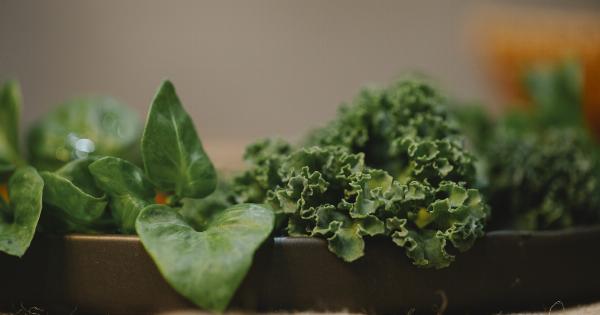Water is essential for our survival and overall well-being. It is recommended to drink an adequate amount of water each day to stay hydrated.
However, there is a common belief that drinking water while eating can have negative effects on digestion and overall health. In this article, we will explore whether there is any truth to this claim and shed light on the potential impact of drinking water while eating.
1. The Claim
The claim suggests that drinking water while eating dilutes digestive juices, leading to poor digestion and nutrient absorption.
It argues that water ingested alongside food can interfere with the natural digestive process and even cause various digestive issues such as bloating, gas, and acidity.
2. The Truth Behind the Claim
Despite the popular belief, there is no scientific evidence to support the claim that drinking water while eating negatively affects digestion. In fact, drinking water with meals is believed to have several benefits for overall health:.
3. Hydration and Digestion
Water is crucial for maintaining optimal hydration levels in our body. When we eat, our body requires water to aid in the digestion and absorption of nutrients.
Drinking water with meals can actually help soften the food, making it easier to chew and swallow, thus enhancing the overall digestion process.
4. Appetite Control
Drinking water while eating can contribute to appetite control. Water adds volume to food, promoting a feeling of fullness and reducing the likelihood of overeating.
This can be especially beneficial for those trying to manage their weight or control portion sizes.
5. Proper Chewing and Swallowing
Water acts as a lubricant, facilitating the process of chewing and swallowing. Adequate chewing and swallowing are important for breaking down food into smaller particles and allowing efficient digestion.
Drinking water alongside meals aids in this process, preventing any discomfort or difficulty in swallowing.
6. Optimal Nutrient Absorption
While it is true that some nutrients are absorbed more efficiently when consumed separately from food, the difference is minimal.
The majority of essential nutrients are effectively absorbed in the small intestine, regardless of whether water is consumed simultaneously or separately. Therefore, the claim that drinking water while eating leads to poor nutrient absorption is unfounded.
7. Individual Considerations
Although there are no general negative effects of drinking water while eating, individual factors might affect certain individuals differently.
For example, individuals with certain gastrointestinal conditions, such as acid reflux or gastroparesis, may experience discomfort or worsened symptoms when consuming water alongside meals. In such cases, it is advisable to consult a healthcare professional for personalized advice.
8. Ideal Water Intake
While drinking water during meals is generally harmless, it’s essential to ensure that you are not excessively filling your stomach with large amounts of water. This can potentially lead to an uncomfortable feeling of fullness or bloating.
It is recommended to consume water moderately, particularly if you have a tendency to overeat or experience digestive issues.
9. Other Considerations
In some cultures and traditions, certain beverages are preferred over water during meals. For example, consuming warm tea or herbal beverages alongside meals is customary in many Asian cultures.
These traditions have not shown any significant negative impact on health or digestion.
10. Conclusion
Based on the available scientific evidence, it can be concluded that drinking water while eating does not have any adverse effects on digestion or overall health for most individuals.
In fact, it can contribute to hydration, proper digestion, appetite control, and optimal nutrient absorption. However, individual differences and certain gastrointestinal conditions may warrant personalized advice from healthcare professionals.






























